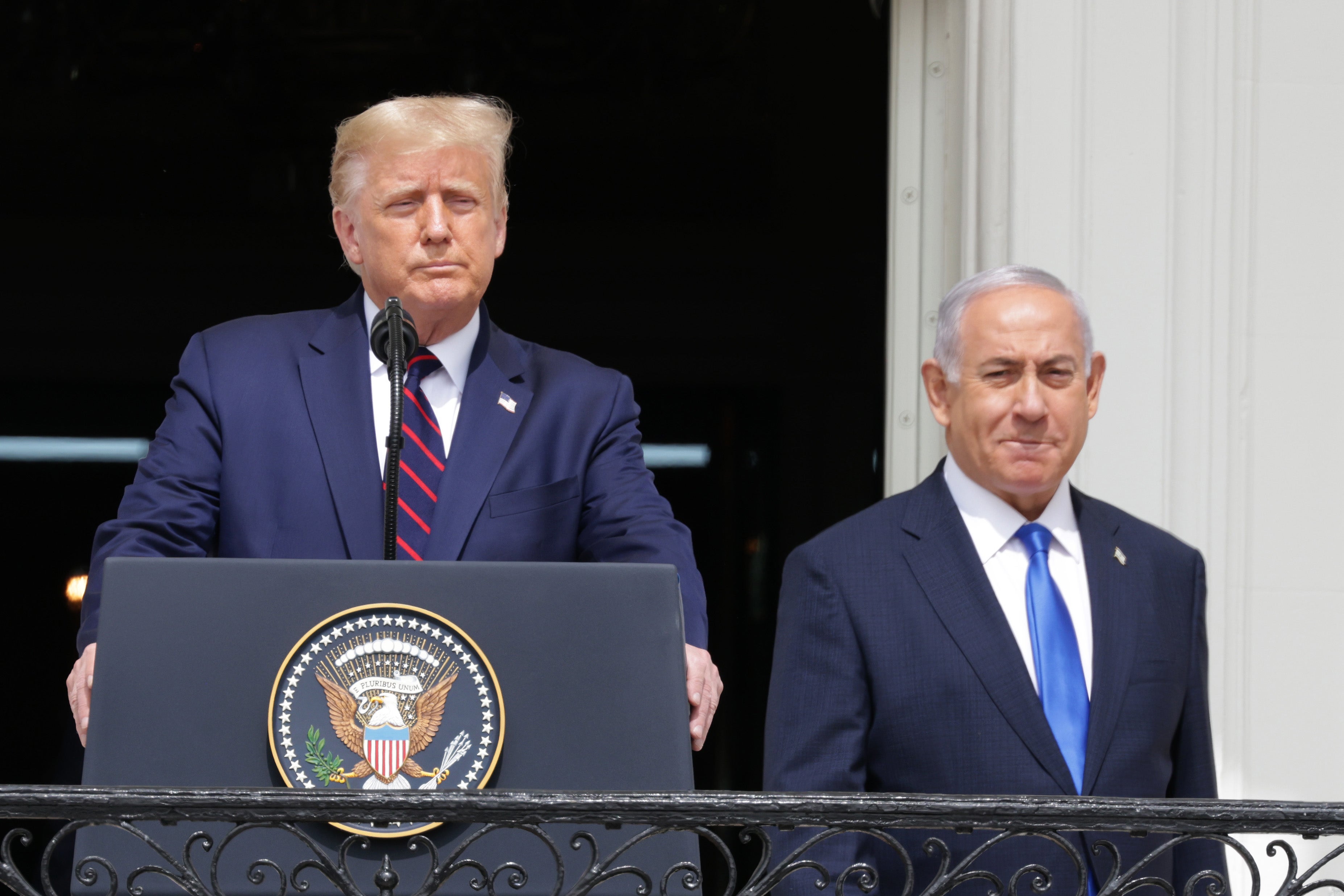The Independent's journalism is supported by our readers. When you purchase through links on our site, we may earn commission.
Donald Trump shows the dangers of antisemitism directed at the diaspora
Trump and his base think Jewish people don’t belong in the US. We remain, supposedly, on their sufferance, which means that they are entitled to our gratitude and our obeisance


Former President Donald Trump has frequently made antisemitic statements and smeared Jewish people as disloyal and greedy. This weekend he went even further. “No President has done more for Israel than I have,” he boasted on his own social media platform Truth Social. Yet, he said, Evangelicals were more appreciative of Trump than Jewish people. He concluded that American Jews needed to “get their act together” before “it is too late.”
It’s telling that Trump’s threat here is directed especially at American Jewish people. The right, as Trump says, has embraced Zionism and Israeli nationalism. Trump’s administration enthusiastically supported aid to Israel, and made a major symbolic move to recognize Jerusalem as the capital of Israel, a move long sought by Israel’s right-wing government.
But American Jews, by definition, don’t live in Israel. Nor do they necessarily support Israel’s right-wing government, or its treatment of Palestinians. American Jews live in America, which is part of the diaspora. And hatred of the Jewish diaspora is one of the most virulent and deadly forms of antisemitism.
The most obvious and horrific attack on diasporic Jews in history was the Holocaust. The six million Jewish people who died in Hitler’s genocide lived in Europe, not Israel. Like Jews in America, they were people who lived in countries that were led by and dominated by non-Jews
Diasporic Jewish people, moreover, were attacked and targeted specifically as members of the diaspora. Antisemites saw Jewish people as disconnected from blood and soil, and as therefore untrustworthy and dangerous.
The Protocols of the Elders of Zion, a hugely popular early 20th century piece of antisemitic propaganda, presented Jews as part of an international conspiracy, plotting to take over the world through diasporic connections in finance and the (again diasporic) ability to infiltrate various nations. The Nazi propaganda film The Eternal Jew emphasized Jewish alienness and homelessness; it compared Jewish people to disease-carrying rats infiltrating port cities. And Soviet post-war antisemitic propaganda referred to Jewish people as “rootless cosmpolitans”, cut off from Soviet Russian fellow-feeling and the nationalism of the soil.
The Jewish state was supposed to offer a refuge to Jewish people who faced oppression in the diaspora. But it also provided a symbolic counter to the idea of the deracinated, scheming diaspora Jew. Early Zionist imagery emphasized masculine power, strength, and honor. This new archetype of Jewish self-sufficiency and nationalist grounding could show people around the world that Jews were not the diasporic caricature of antisemitic propaganda. That should, in theory, benefit diasporic Jews too.
In practice, though, that’s not exactly how it’s worked out. Islamophobic Evangelical Christians and their leaders, like Trump, do like to tout the image of a strong, nationalist Israel as a crusading ally against Muslim nations in the Middle East. But this Zionist enthusiasm doesn’t translate into respect for Jewish people in the diaspora.
On the contrary, as Trump demonstrates, the Evangelicals’ embrace of what they see as the good Jews of nationalist Zionism often is coupled to a contempt for what they see as the bad Jews of the diaspora.
Trump in particular has repeatedly used the “dual loyalty” trope — the antisemitic idea that Jewish people in the diaspora are committed to other Jews rather than to the country where they live. In the past, this trope has been used to link Jewish people to an international conspiracy. Trump though, suggests that Jewish people in the diaspora are, and should be, loyal to Israel. If they are, then they should support him. If they aren’t, then they are traitors, both to Israel and to Trump, as the embodiment of the US.
This rhetoric is dangerous to diaspora Jewish people, and the danger is not at all abstract. Perhaps the biggest anti-diasporic conspiracy theories currently center around billionaire Holocaust-survivor and Democratic donor George Soros. Soros, as a former immigrant with significant wealth, has been made to stand in for many diasporic Jewish stereotypes — he is portrayed as an evil outsider corrupting the nation and the volk.
Soros has been falsely accused of funding basically every left movement and policy of the last decade at least. For example, in 2018 Republicans claimed he was funding migrant caravans across the US Southern border. Donald Trump broadcast that talking point himself. It was picked up by one far right reactionary who was so enraged he went to Tree of Life synagogue, where the congregation had done work to help immigrants, and murdered 11 people.
Most Jews in the diaspora are aware that they are in danger in an ultra-nationalist, intolerant, Evangelical-centered US which hates outsiders. That’s why 70 percent of Jewish people in the US vote for Democrats.
Jewish support of the Democrats irritates Trump. But his antisemitism, and the echoing silence on the right in response, very much confirms that Jewish people are under threat from the Republican party and its rabid, ascendant right wing. Trump and his base think that Jewish people don’t belong here. We remain, supposedly, on their sufferance, which means that they are entitled to our gratitude and our obeisance. If we are not sufficiently deferential, then, they suggest, like some sort of cinema mobster, bad things will happen to us. They think this is their country, not ours.
They’re wrong. American Jews are American, and this is our country too. Fascists like Trump hate the diaspora. That’s all the more reason to be proud that the diaspora is still here.




Join our commenting forum
Join thought-provoking conversations, follow other Independent readers and see their replies